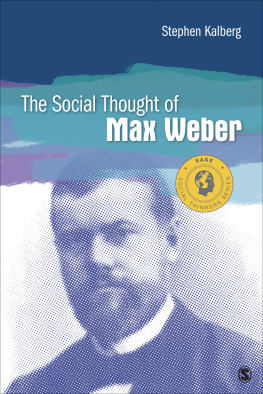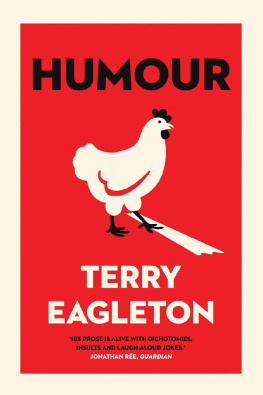
The Uses and Abuses of Humour in Social Work
In recent years, social work academics and practitioners have highlighted the need to re-claim methodologies which unpack creativity and resourcefulness. In the bleakest of times many turn to humour to survive. Making a unique contribution to social work thought, this is the first book to focus exclusively on humour use in relation to social work.
Over eight chapters Jordan covers a range of examples of social work humour, using examples from practice, fiction and research. He concludes that social work has a complex relationship with humour and that humour has an important role in social work as it enables social workers to hold contradictory views. It also allows society to manage its ambivalent and contradictory view of social work.
Aimed at academics, students and social work professionals, this book explores social works sometimes uneasy relationship with humour. It will be of interest to anyone with an academic interest in humour.
Stephen Jordan worked as a social worker for 19 years and now works for the University of Essex where he lectures in social work.
Routledge Advances in Social Work
Consciousness-Raising
Critical Pedagogy and Practice for Social Change
Nilan Yu
Participatory Pedagogic Impact Research
Co-production with Community Partners in Action
Mike Seal
Forthcoming
Intersectionality in Social Work
Activism and Practice in Context
Edited by Suryia Nayak and Rachel Robbins
Conversation Analysis for Social Work
Talking with Youth in Care
Gerald de Montigny
Older Lesbian, Gay, Bisexual and Trans People
Minding the Knowledge Gap
Andrew King, Kathryn Almack, Yiu-Tung Suen and Sue Westwood
Visual Communication for Social Work Practice
Power, Culture, Analysis
Sonia Magdalena Tascon
Art in Social Work Practice
Theory and Practice: International Perspectives
Ephrat Huss and Eltje Bos
The Uses and Abuses of Humour in Social Work
Stephen Jordan
www.routledge.com/Routledge-Advances-in-Social-Work/book-series/RASW
First published 2019
by Routledge
2 Park Square, Milton Park, Abingdon, Oxon OX14 4RN
and by Routledge
52 Vanderbilt Avenue, New York, NY 10017
Routledge is an imprint of the Taylor & Francis Group, an informa business
2019 Stephen Jordan
The right of Stephen Jordan to be identified as author of this work has been asserted by him in accordance with sections 77 and 78 of the Copyright, Designs and Patents Act 1988.
All rights reserved. No part of this book may be reprinted or reproduced or utilised in any form or by any electronic, mechanical, or other means, now known or hereafter invented, including photocopying and recording, or in any information storage or retrieval system, without permission in writing from the publishers.
Trademark notice: Product or corporate names may be trademarks or registered trademarks, and are used only for identification and explanation without intent to infringe.
British Library Cataloguing-in-Publication Data
A catalogue record for this book is available from the British Library
Library of Congress Cataloging-in-Publication Data
A catalog record for this book has been requested
ISBN: 978-1-138-47758-2 (hbk)
ISBN: 978-1-351-10432-6 (ebk)
Typeset in Times New Roman
by Apex CoVantage, LLC
In memory of Martin Jordan 19672017 I first learnt to laugh with you, my brother
There are many people I wish to thank for their help and support, without whom this book would not have been possible.
At Routledge Id like to thank Claire Jarvis who set the ball rolling, Kevin Kelsey and Georgia Priestley for their encouragement and support.
Over the years, there are some great people I have had the good fortune to work with over the years Julia Blackstone, Patrick Cahillane, Ellie Hal-Fead, David Britton and many others who taught me the value of humour at work.
My colleagues in the social work team at the University of Essex, who have been supportive of my efforts, particularly Janet Phillips, Ian Harris, Sarah Wiblin, Gert Scheepers, Olivia Hanson, Andrew Thomas, Hazel Cutts, Aaron Wylie and Vasilios Ioakimidis.
There are a number of people who I worked with at the Tavistock during my studies and this book owes much to their wise and insightful advice, particularly Andrew Cooper, Clare Parkinson, Jo Finch, Judy Foster, Stephen Briggs and Bernadette Wren.
I want to thank all the practitioners who took part in my original research and all the children, families, foster carers and colleagues who shared their good humour with me over the years of practice, particularly Louis for your friendship and kind words.
And last but not least this book would not have been possible without the support and endless patience of my family Sue, Joseph and Lilian.
1
Introduction
A social worker asks a colleague: What time is it?
The colleague answers: Sorry, I dont know. I dont have a watch.
The first one says: Never mind! The main thing is that we talked about it.
Introduction
I feel honoured to have been a social worker and often amazed of what social work can achieve when it is practiced well, despite the challenges. In an interview in which Wunmi Mosaku talked about the 2018 Channel 4 social work drama Kiri she said that social work is
a stressful job and all theyre doing is trying to support where there isnt support. They go into it because they want to help, and if things go wrong its so hard, because how can you tell if someone is going to do what you say, or theyre lying? You can be cynical, or you can trust them, and that can have equally a positive or negative effect on a situation or a childs life.
(Saner, 2018)
It seems to me that social work is a uniquely human endeavour to help others, which relies heavily on the skills and ability of the individual social workers, often in situations which feel like having to make the least worst decision, amongst a very limited range of ways to help. I want others to think well of the social work profession and social workers, and in this context, it might appear counterintuitive to write a book about the uses of humour in relation to social work, however the central tenet of this book is that a study of humour has much to offer, particularly in terms of understanding people, social workers and the social work profession.
Whilst social work might be considered a relatively new profession when compared with doctors, nurses or teachers, it is a profession which has struggled to be confident in its place in the world. My suggestion is that humour by exposing the flesh beneath the skin can sometimes allow us to examine the real human component of what makes social work possible. In this book I examine the times humour has been used, including when it has been used to ridicule social work. These is not an attempt to attack a profession I care deeply about, but to increase understanding of social work practice.
Mark Griffiths in his book The Challenge of Existential Social Work Practice posits the question, how do we bring about the full potential of social work in a new modern technological era? (Griffiths, 2017, p. 14). Some authors (e.g. Vaitulionyt and Naujanien, 2016) see humour as another creative tool for social workers to engage their service users and clients, and this book suggests that an examination of humour can help to unlock the potential of social work, as humour represents the most social of our social selves.











